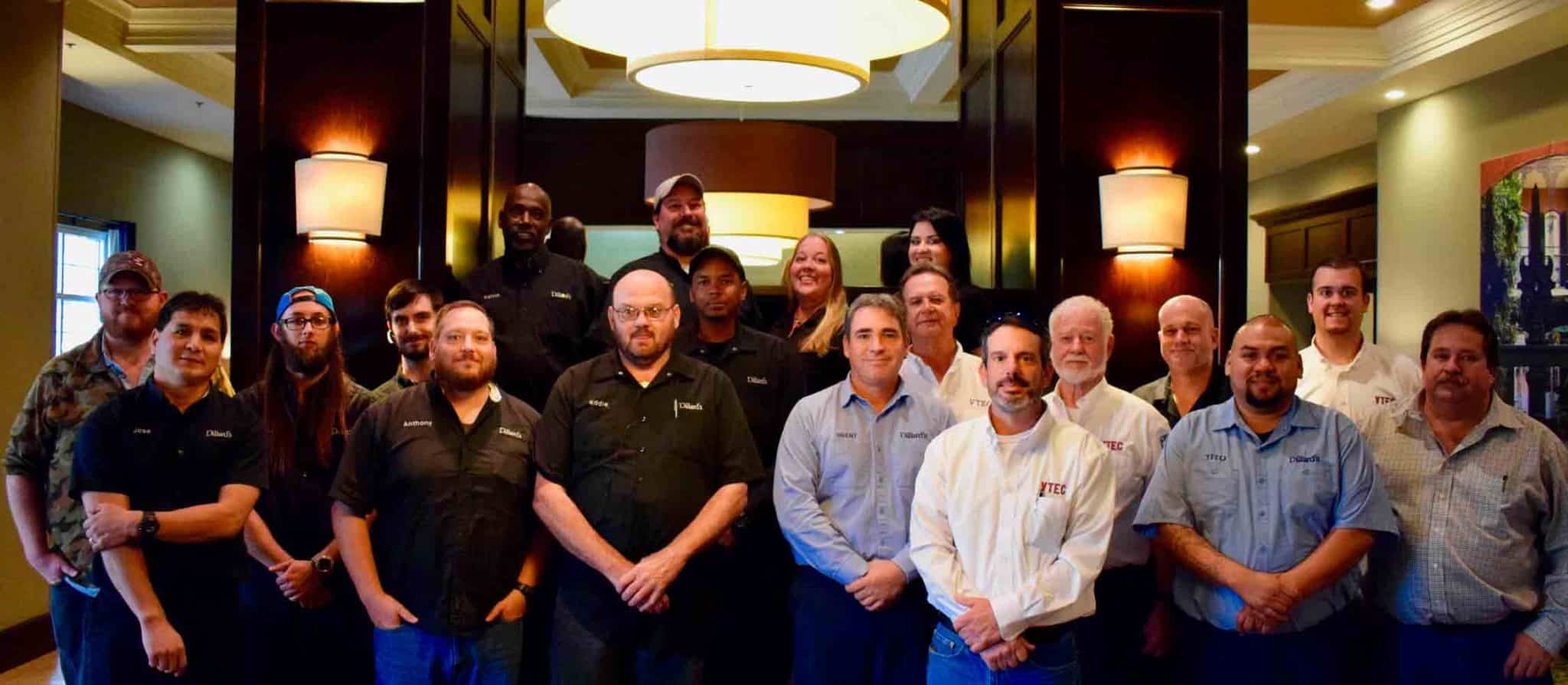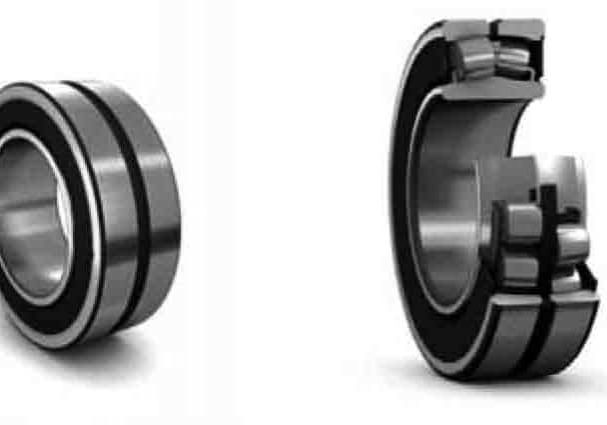Elevator Education at Dillard’s
Feb 1, 2018

CET program earns praise from those on the front lines maintaining U.S. department store’s VT equipment.
In 2001, The National Association of Elevator Contractors’ (NAEC) Education Committee began developing an elevator-specific education and certification program known as the Certified Elevator Technician (CET®) program. From the very start, NAEC partnered with Elevator World, Inc. to create, publish and sell the materials that would make up what are now known as CET kits.
The CET program is a four-year program that continues to lead the industry in providing education for companies needing quality elevator and escalator maintenance training. One such company, and one of the largest users of the program, is Dillard’s, an American department-store chain with approximately 330 stores in 29 states, headquartered in Little Rock, Arkansas.[1]
Last November, in a hotel conference room just outside of New Orleans, 12 vertical-transportation (VT) maintenance mechanics from Dillard’s were guided through a portion of the CET program. Dillard’s has been using the program since the program’s inception in 2001. However, not until 2013, when the company decided to outsource the training to the Vertical Transportation Education Center (VTEC), a company that provides training and certification, has the program been utilized to its full potential. Dillard’s is unique among other major retailers in that it manages its own VT, and several other building functions, entirely in-house.
Your author took the opportunity to witness the training firsthand, as Elevator World is based in Mobile, Alabama, only a few hours’ drive east of New Orleans, a market that Dillard’s entered in 1989 when it purchased the local D.H. Holmes department-store chain.[1]
Classes in this program were led by Warren Hunter of VTEC. The circumstances that brought Hunter to the encounter with Dillard’s mechanics were no coincidence. (See sidebar.)
In 2013, Ronnie Small, one of five divisional engineers for Dillard’s, reached out to Rene Marques with EMR Elevator Services, Inc. Small and Marques have worked together since the mid 1990s. Small explained that Dillard’s was in need of a high-quality training program. Reflecting on that conversation, Marques laughs, recalling he told Small, “Give me a few months to think about it.”
The rest, as they say, is history. Marques, Hunter and Small praise the CET program for the education it provides to mechanics. With extensive knowledge of other training options, including the International Union of Elevator Constructors’ program, Marques says he fully trusts the CET program.
In 2011, the U.S. Department of Labor Office of Apprenticeship approved NAEC’s National Guidelines for Apprenticeship Standards. CET is the nationally recognized training program for the elevator industry included in the standards.
One of the key aspects of the CET program that distinguishes it from others is that it standardizes the number of hours that establishes a trainee as an apprentice. To Marques, this provides those being trained with a high level of safety awareness, maintenance knowledge and integrity to perform quality work. It also provides the clients and building owners peace of mind knowing the mechanic is “certified,” as opposed to just being licensed. The CET program allows companies that utilize it to be able to compete by providing “bigger and better” service, he says.
Joining Dillard’s after the 1998 purchase of Mercantile Stores Co. Inc. for US$2.9 billion, Thomas Goetz, senior corporate director of Technical Operations and Engineering for Dillard’s, has divided the country into five sections, assigning approximately 20% of the stores to each divisional engineer. (Table 1)
In the 1980s, Dillard’s applied its in-house maintenance philosophy to its VT, and while it provided immediate benefits over contracting, Goetz points out it was struggling and needed central leadership. So, in 2001, just as the CET program was beginning, Goetz pitched the idea to his supervisors. He recalls:
“This was the first step to making everybody be consistent as a nationally recognized certified technician. And the only way to do this is to have a structured class. The CET program is a well-thought-out program. It commands a level of respect in the industry.”
He goes on to commend the supervisors at Dillard’s for fully supporting and funding the CET program. That support produces a level of pride in the technicians. “They’re all very loyal to the company and want to become better at what they’re doing,” Goetz said. “The CET program is Dillard’s way to show commitment to their safety and quality of work.”
Want to Know More?
For more information on NAEC, and to register for the CET program, visit naec.org. For CET program kits and other educational materials, visit elevatorbooks.com. To contact the Vertical Transportation Education Center, email vtec5449@att.net.
Acknowledgements
Your author would like to thank Ronnie Small of Dillard’s; and Rene Marques, Warren Hunter and Kevin Doiron of VTEC for making his visit a positive experience.
Warren Hunter: From Otis to VTEC
In the 1970s, Warren Hunter was working as an adjuster for Otis. His territory stretched from northwestern New Mexico to Raleigh, North Carolina. “Anytime the New Orleans office got a new piece of equipment that was not gearless, it was my job to adjust it,” Hunter recalls.
He also taught a 2-hr. course once a week to Otis maintenance mechanics on how to maintain the new piece of equipment he had adjusted. Hunter always enjoyed teaching, saying it was one of the best parts of his job. He met student Rene Marques, a maintenance mechanic with Otis, during a class in the mid 1970s. Over the next several years, Hunter and Marques would occasionally cross paths on various projects in Louisiana and the surrounding area.
Hunter’s career with Otis would last more than 30 years, until his retirement in 2001. After successfully holding various positions throughout the industry with different companies, Marques started his own business in 2011 — an elevator and escalator repair and maintenance company called EMR Elevator Services, Inc., where he is now general manager/owner.
In 2013, Marques decided to put some of his mechanics at EMR through the CET training program. He came to realize that the industry, specifically non-union companies, was in great need of education and training. This led him to start the Vertical Transportation Education Center (VTEC), to serve as a middleman between clients like Dillard’s and the CET program. Marques notes the CET program is not something companies can just decide on a whim to teach their employees. “You don’t just say, ‘Hey, we’re going to start a CET school, and we’re going to do this next week.’” It takes months of preparation to teach properly, he says, but the results are worth the effort.
“There are a lot of non-union companies that need this program,” Marques adds. “They just don’t have the people, the time and the infrastructure to build it.”
That’s where the Vertical Transportation Education Center comes in. To do it right, Marques would need certified instructors with extensive industry experience and someone he could trust. In September 2016, Marques called Hunter and asked him to be an instructor for VTEC. “When he called me, he said, ‘Warren, I sat in too many of your classes to not offer you this,’” Hunter says. “And here I am a year later, teaching for VTEC.”
Reference
[1] Wikipedia. “Dillard’s (en.wikipedia.org/wiki/Dillard%27s)
Get more of Elevator World. Sign up for our free e-newsletter.







